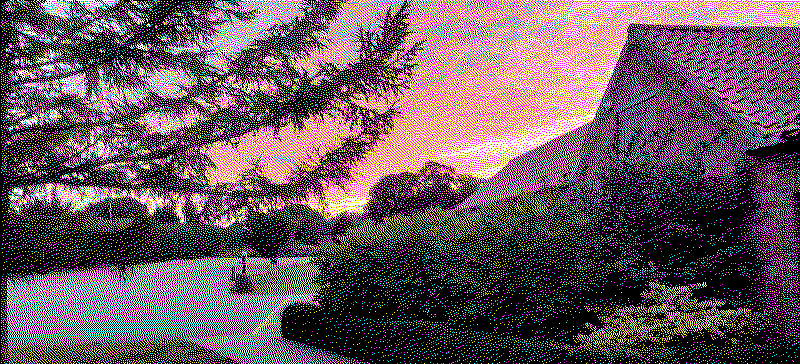Weeknote 32/2021

I’m currently in Lincolnshire at a weekend away with my wife’s extended family to celebrate her grandfather’s 90th birthday. I love this area — so flat and some places seem so remote, despite really not being that far away from civilization!
This has been a largely uneventful week other than Wednesday evening. At a training session for his new team, my son was shouldered off the ball and landed on his back/neck. I jumped over the fence around the training pitch almost before he hit the ground because I knew what was going to happen next.
Early last year, just before the pandemic, he was involved in a playground scuffle that ended up with some damage to his neck. He couldn’t feel several of the fingertips on his left hand for weeks afterwards. That all went away after several hospital trips and physio. Then, this year, in the first match back after the pandemic, after trying to style out a stumble by doing a forward roll, he went into shock and an ambulance ended up coming onto the pitch.
On Wednesday evening, therefore, I wanted to get to the bottom of things and told the hospital staff that I didn’t particularly want to come back next time with a paralysed son. Six hours later, after a battery of tests, they confirmed that he has suffered no neurological damage. The consultant, who used to be a rugby player, suggested that it could be a stinger injury:
Stingers get their name from the intense, electric-like pain that characterizes the injury. Symptoms also include sensations of tingling and/or weakness in the arm and hand. Typically, the pain lasts 10 seconds or less, but sometimes continues for hours or even days.
The pain is triggered when the impact stretches or presses on the group of nerves called the brachial plexus. These nerves start in back of the neck and travel down into the arm and hand. After the initial electrical discharge at the time of impact, the nerves’ motor fibers that allow movement in the arm often do not function well. The dysfunction is evident by weakness in the arm and possibly the hand.
During our time in hospital while we were waiting between consultations and scans we listened to Prophets of Doom, one of my favourite episodes of Hardcore History, which in turn is one of my favourite podcasts. We ended up at a McDonald’s drive-thru at 2am following a police van that was presumably picking up donuts.
Work-wise, we’ve agreed the scope of some strategy work with Julie’s Bicycle, and are busy negotiating the next phase of some work around Open Badges and communities of practice with Participate. We met with charities as part of the Catalyst Continuation project, and planned the trailer for the next season of the podcast.
This week also involved a meetup of the Sustainable Leadership & Deep Adaptation course I did last month. I think all of the participants came along for a chat and we spent some time in breakout rooms doing wisdom circles. As it happened, Annette, one of the people in my breakout group, was heading on holiday later to Northumberland near where I live, so we got to meet up IRL as well!
Other than that, I was a guest on the Speexx Exchange podcast with Donald Taylor, which I enjoyed. Don’s a great guy and we’ve bumped into each other plenty of times over the years. The episode should be out in the next few weeks, and we’re going to have a chat about my involvement at the Learning Technologies conference next year.
Next week, well it’s still August, so I’m planning for four-hour workdays while taking the kids to and from tennis camp and generally doing stuff around the house. Yay for relaxed summer working!


